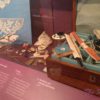Today we remember Patrick Branwell Brontë‘s death, and that’s why we’d like to write something about this obscure brother of the Brontë sisters- a man who we learnt to know better during this year. As a matter of fact, this year is entirely dedicated to Branwell, as it is his bicentenary year, and all eyes are on him. In our opinion also To Walk Invisible, the BBC drama entirely focused on the Brontë sisters, helped in sketching his role inside the family. We were absolutely curious to go and see the exhibit with the clothes and props from the set of To Walk Invisible at the Brontë Parsonage Museum, and when we finally got there last August, our expectations were totally exceeded.
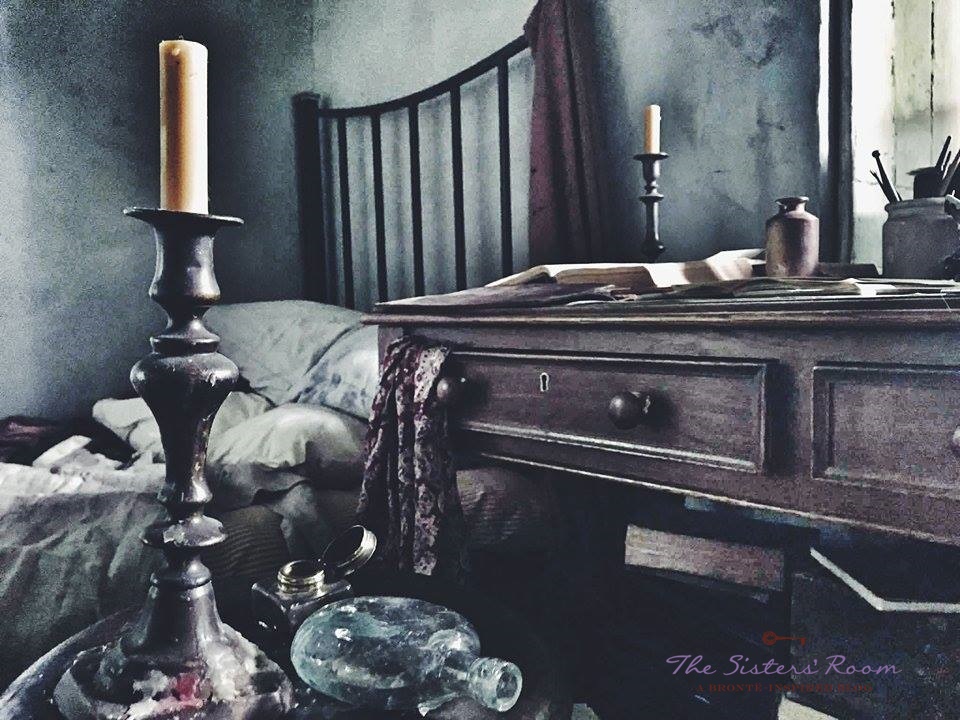
You can see objects and decorations from the movie in every room: there are plenty of clothes and costumes, 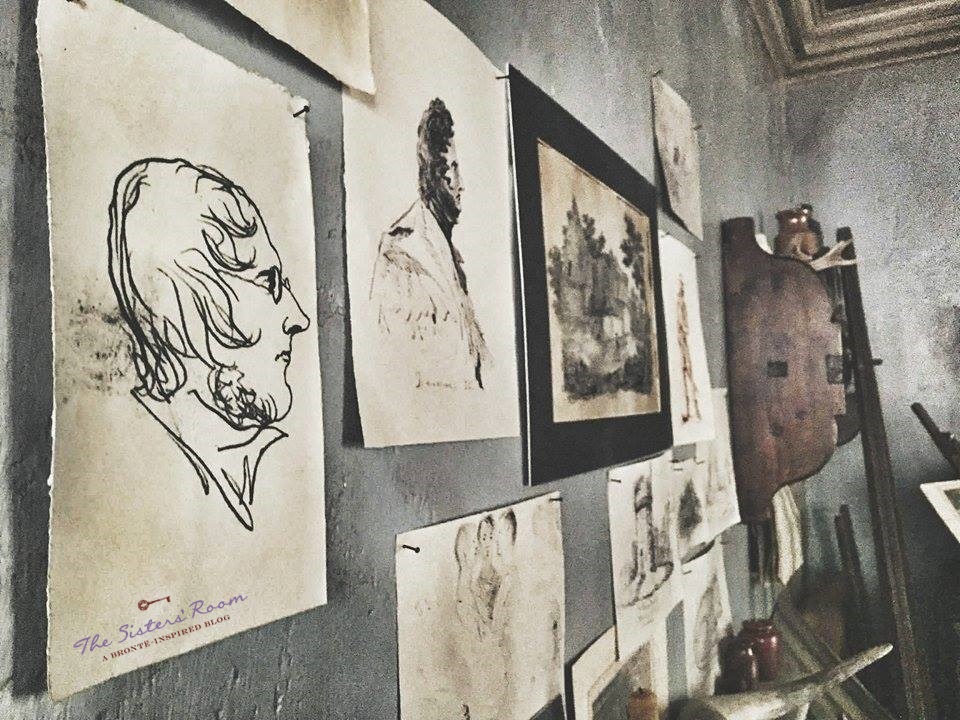 accurately and carefully created by Tom Pye together with an equipe of academics and experts; there are also lots of replicas of some personal objects, but the real surprise awaits for you upstairs. In fact, they rebuilt Branwell’s studio as we saw it in To Walk Invisible. A dark, very messy room where you can see drafts, sketches, letters and newspapers everywhere, as well as pens, nibs, brushes, easels and papers with massive stains of ink. You can see an unmade bed, and lots of portraits and sketches of landscapes on the wall. As always the attention on details is impeccable: look closely, and you’ll notice an empty bottle knocked over in a corner, or A Parody, one of Branwell’s most known works, casually on top of a stack of papers on his desk. There is total chaos in here, and you can easily imagine that this room must really have looked like something like this, back then.
accurately and carefully created by Tom Pye together with an equipe of academics and experts; there are also lots of replicas of some personal objects, but the real surprise awaits for you upstairs. In fact, they rebuilt Branwell’s studio as we saw it in To Walk Invisible. A dark, very messy room where you can see drafts, sketches, letters and newspapers everywhere, as well as pens, nibs, brushes, easels and papers with massive stains of ink. You can see an unmade bed, and lots of portraits and sketches of landscapes on the wall. As always the attention on details is impeccable: look closely, and you’ll notice an empty bottle knocked over in a corner, or A Parody, one of Branwell’s most known works, casually on top of a stack of papers on his desk. There is total chaos in here, and you can easily imagine that this room must really have looked like something like this, back then.
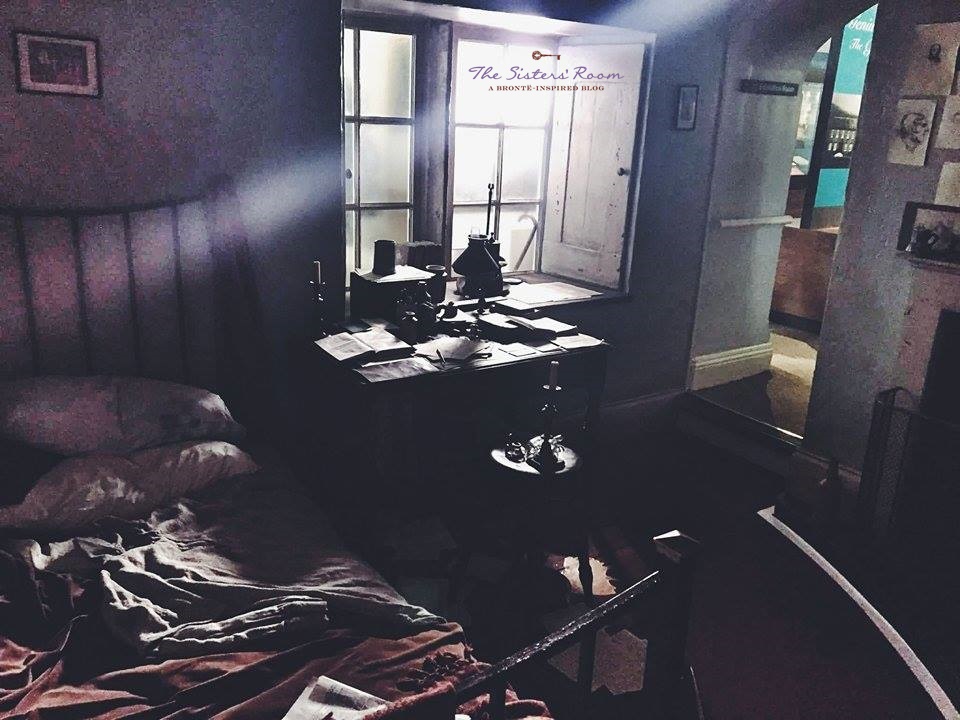
It looks like To Walk Invisible made people talk a lot, especially about the role Branwell had in it. Even though the drama is dedicated to the sisters, he’s still one of the very main characters. Branwell the violent one, the drunk, the thoughtless guy. Branwell who’s a looser and who messes up his family’s life.
We’ve read and heard a lot of opinions about this BBC drama, and the thing which stroke our attention the most was that we felt like many spectators were expecting much more attention on the sisters and less on him, who, after all, did not enter history for any particular reason. Well, it’s true- if we talk of Branwell, we most surely think about his faults and not about his praises; we think about his failures and not about his successful goals.
But as for what concerns our approach to his role, we still think that there is a 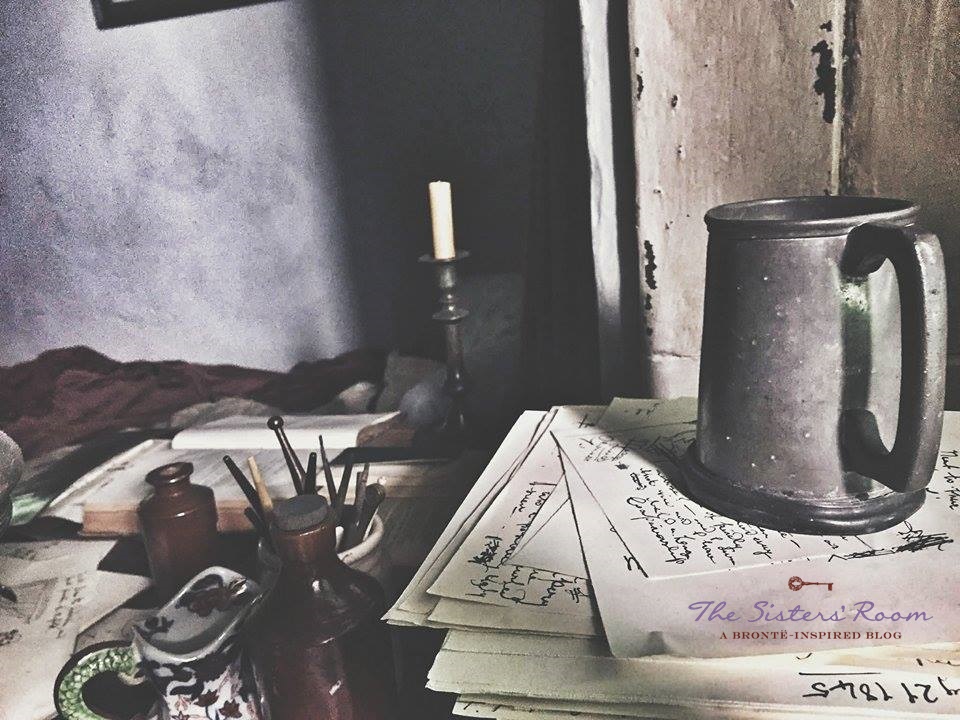 crucial fact that cannot be understimated- in a nutshell, Branwell, as he was, was foundamental to his sisters’ personal and professional formation. It’s true- if we take as a unit the immortal echoes of English Literature, Branwell didn’t create anything that entered the golden rose of the timeless masterpieces we remember still today; moreover, from a human point of view, he actually was the black sheep of the family- once again, it is true. But none of these elements can change the fact that he is to be remembered, as well. That he had a crucial role in his family, and that he is impossible to forget.
crucial fact that cannot be understimated- in a nutshell, Branwell, as he was, was foundamental to his sisters’ personal and professional formation. It’s true- if we take as a unit the immortal echoes of English Literature, Branwell didn’t create anything that entered the golden rose of the timeless masterpieces we remember still today; moreover, from a human point of view, he actually was the black sheep of the family- once again, it is true. But none of these elements can change the fact that he is to be remembered, as well. That he had a crucial role in his family, and that he is impossible to forget.
It’s really important to understand how much, and how deeply, his obscure life is weaved together with those of his brighth sisters. To Walk Invisible doesn’t show us anything new, but it does also not exclude the shady section from our view. It’s a bit like walking through the Parsonage: we can observe and appreciate the well organized and clean rooms, and suddenly we find ourself in that messy chaos, in that dark and shabby studio- we can feel something is wrong. And then again, there it is, just in front of us– Branwell’s darkness is not so different from that very same darkness we can find in his sisters’ novels. There it is. That very same darkness which upsets us so much, but that we can’t help loving so deeply.
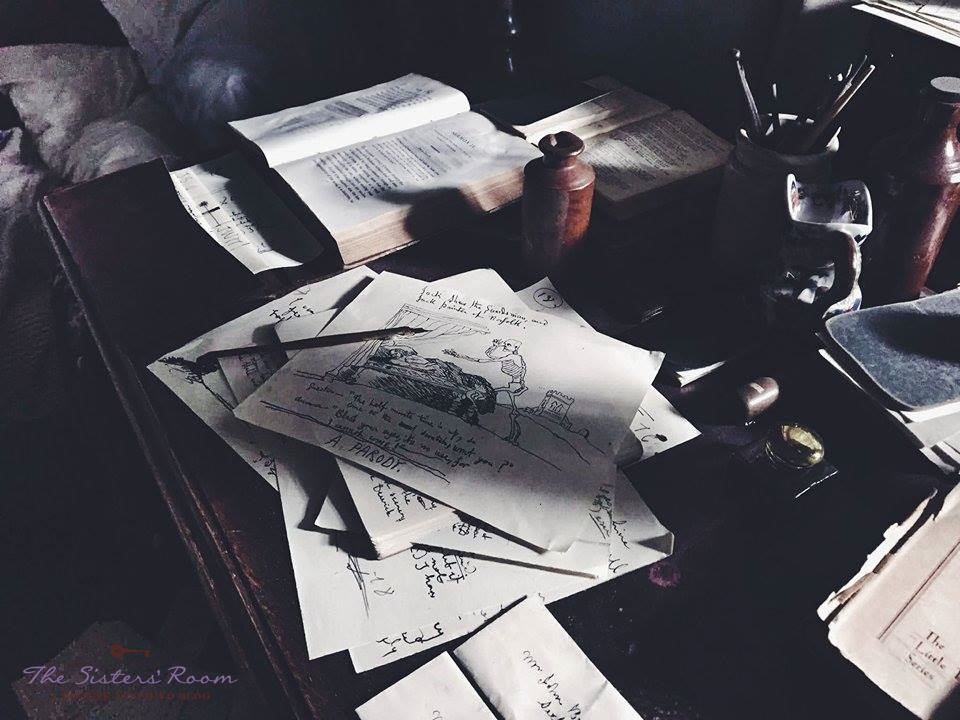
Serena
If you liked this article about Branwell and want to know more about his dark life, then don’t miss these: “Thank God I’m Not You!”- Emily and Branwell’s relationship in To Walk Invisible”, “Branwell Brontë and his unfinished novel – an article by Maddalena De Leo”, and “Branwell Brontë- the “Forgotten” Brother?”
If you haven’t seen To Walk Invisible yet, you can buy it clicking on the image below! We highly recommend it!





